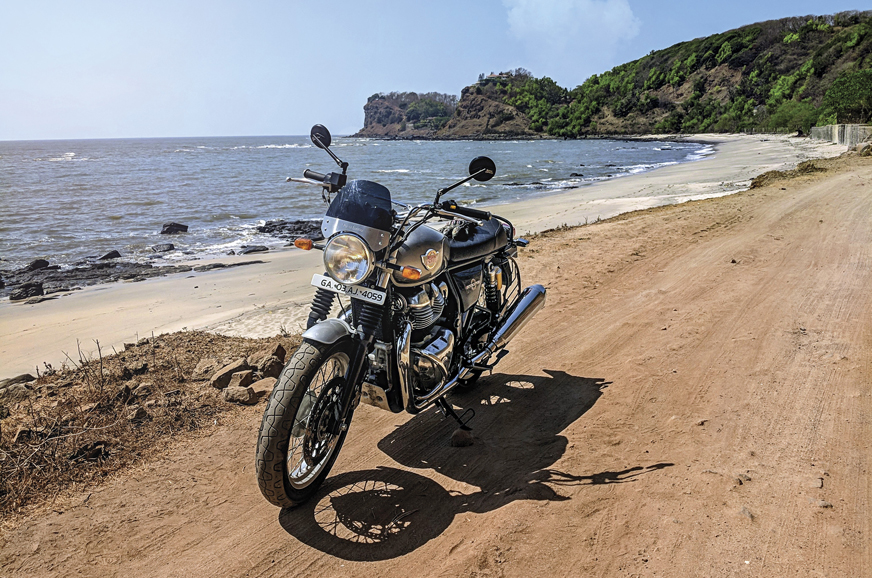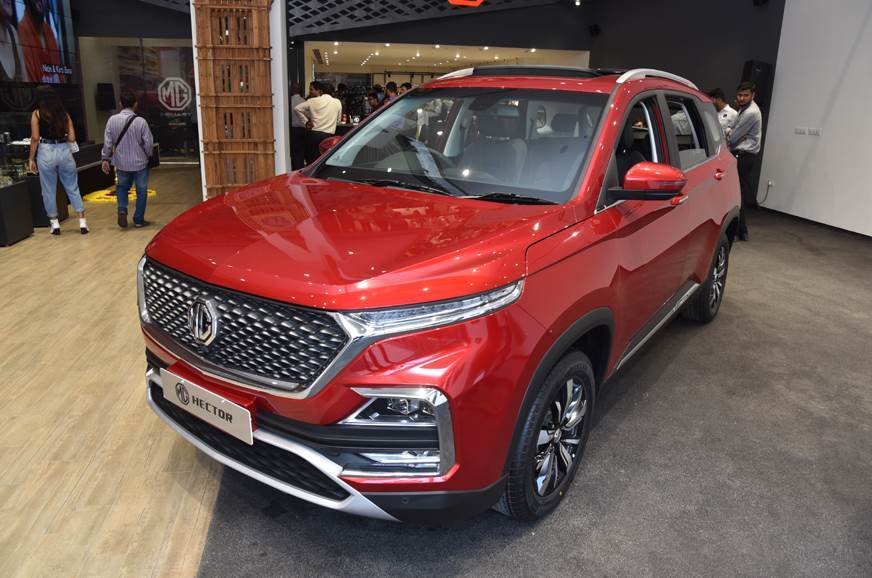
The last time our long-term Interceptor was featured here, it’d just completed a 2,700km round trip to Chennai. In the six months since, it’s been ridden down coastlines, onto beaches, and even been on a ferry! When it wasn’t out on the road, it spent its time in a garage in Mumbai getting some tasty performance updates. The Interceptor never really needed it, but the RaceDynamics PowerTRONIC piggyback ECU, a BMC air filter and a Growler exhaust from Indimotard have added oodles of character – as well as a noticeable bump in performance. You can read about these in the last two issues.
In my time with the Interceptor, I rode down to Dapoli, a little town to the south of Mumbai that was once a British camp. The roads that lead there are narrow, pothole-ridden stretches that wind through lesser-known villages along the west coast. I took in the view while the Interceptor soaked up and breezed through inconsistencies in the terrain. It felt just as composed and nonchalant as it did through the Mumbai monsoon, with the tyres and brakes doing a commendable job even in the wet. The riding experience is made even more enjoyable by that sweet, thunderous exhaust and the quickshifter that came along with the PowerTRONIC unit.
The more we ride the Interceptor, the clearer it gets that there’s nothing else like it at the same price point. It feels just as content pottering around at city speeds as it does ripping down highways at more-than-acceptable speeds. It’s definitely a heavy-feeling bike in the city, but the engine doesn’t radiate unbearable levels of heat, even in crawling traffic. Keep in mind, though, that your legs do sit close to the hot engine cases, so you do run the risk of getting burnt if you’re not wearing jeans and proper footwear, in the very least.
We have a ton of memories with the Interceptor. However, not all of them have been great. After the troublesome episode of dealing with punctures, we were faced with a wobbly front end. We suspected that the steering bearing may have worn out, but Royal Enfield tells us that it only needed an adjustment. We got it repaired recently, and it seems to be running fine now. The powertrain has been flawless through the nearly 11,000km the bike has been through, but some visual aspects have suffered from the four-month monsoon. Certain metal parts – like the chrome engine cases and rocker covers – began showing signs of oxidation. Enfield had them polished and buffed (at Rs 2,950); and while it has greatly reduced the visible spots, they aren’t completely eradicated. The bike also had its front brake pads changed (for Rs 2,499) apart from a general service that included cleaning the throttle body and an oil change. The total bill came to Rs 9,112, including taxes.
This will be the Interceptor’s final report and it has lived a life of brisk riding with no significant issues, while always keeping a smile on our faces. We’re going to enjoy the little time we do have left with it.
Also see:
Royal Enfield Interceptor 650 long term review, first report
Royal Enfield Interceptor 650 long term review, second report
from Autocar India https://ift.tt/307CcPl
via IFTTT

No comments:
Post a Comment